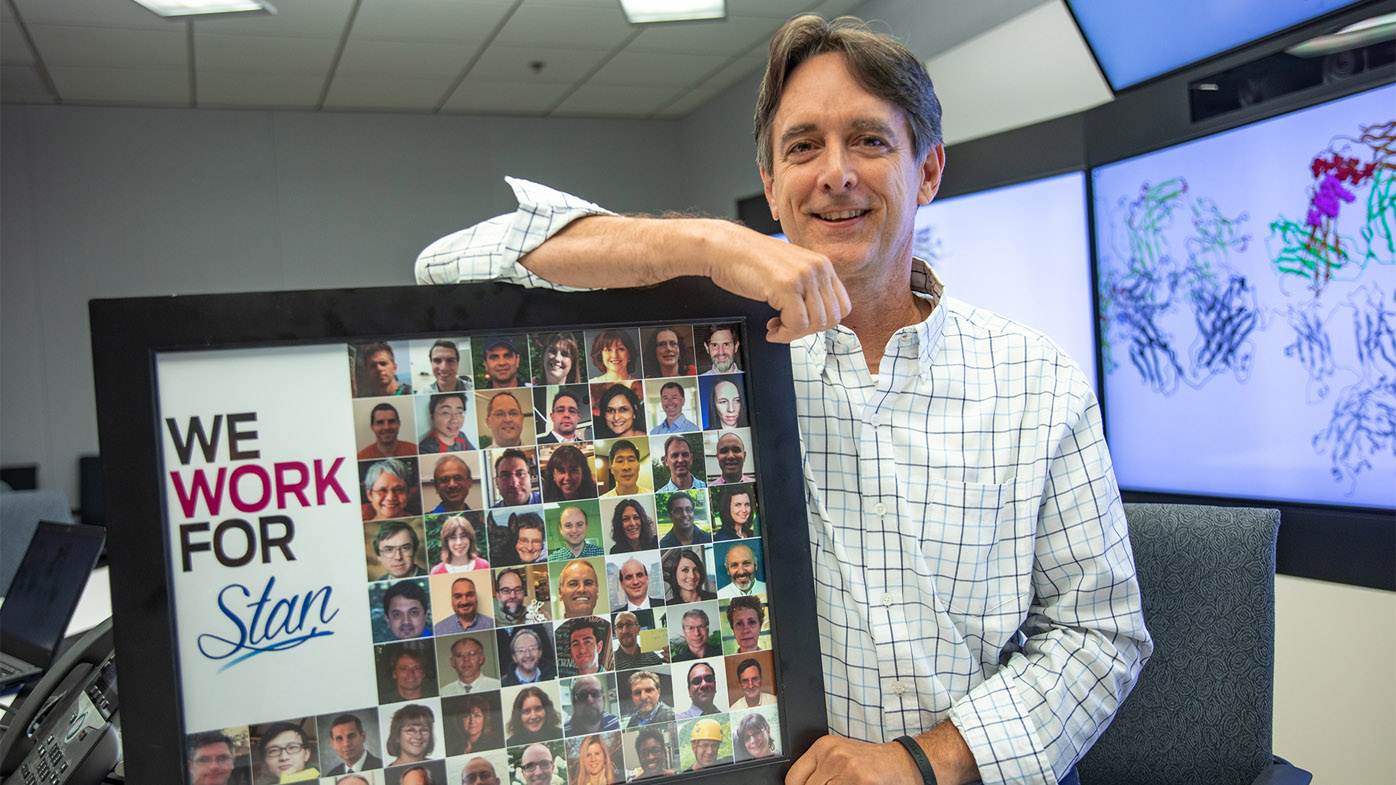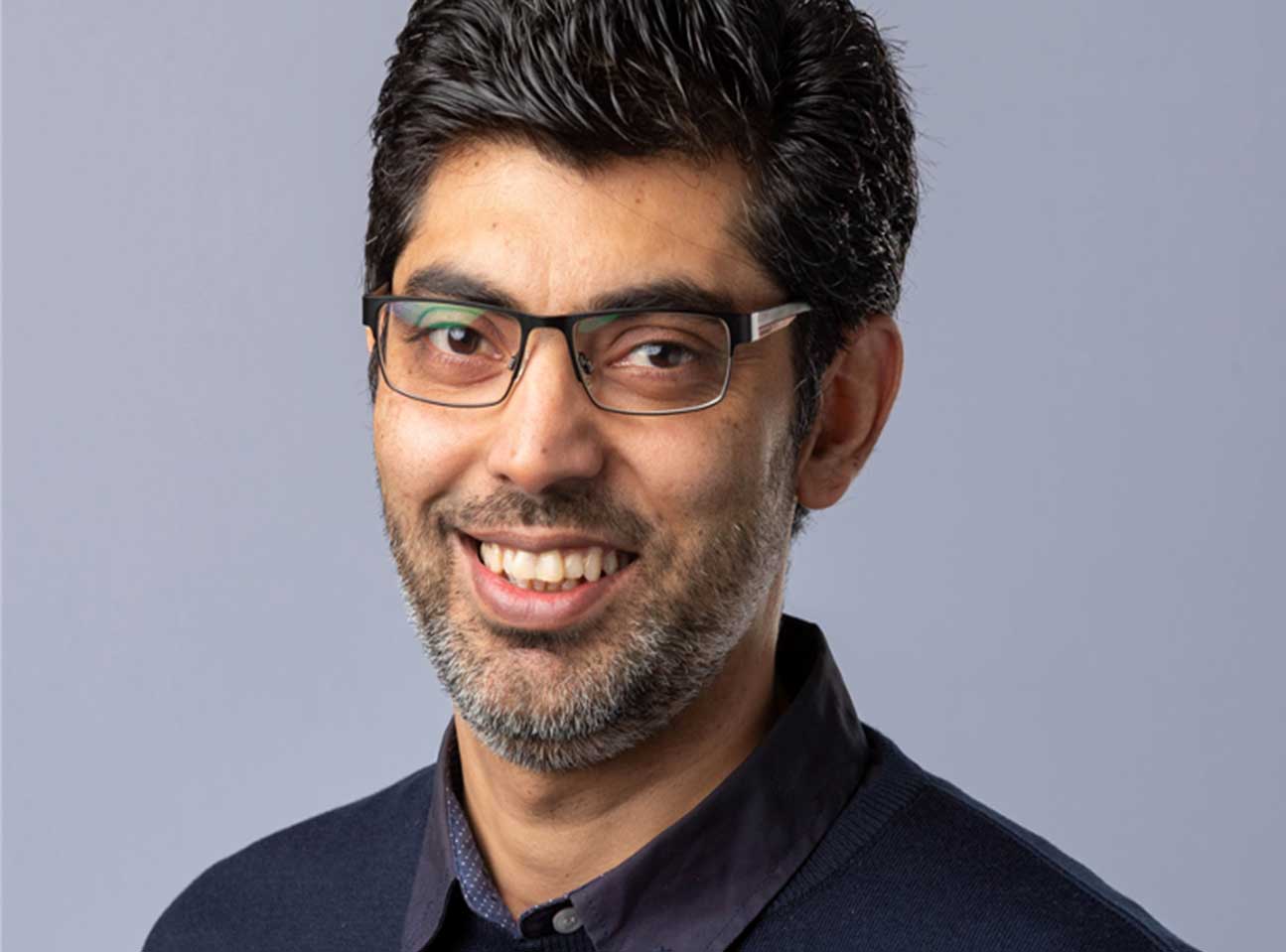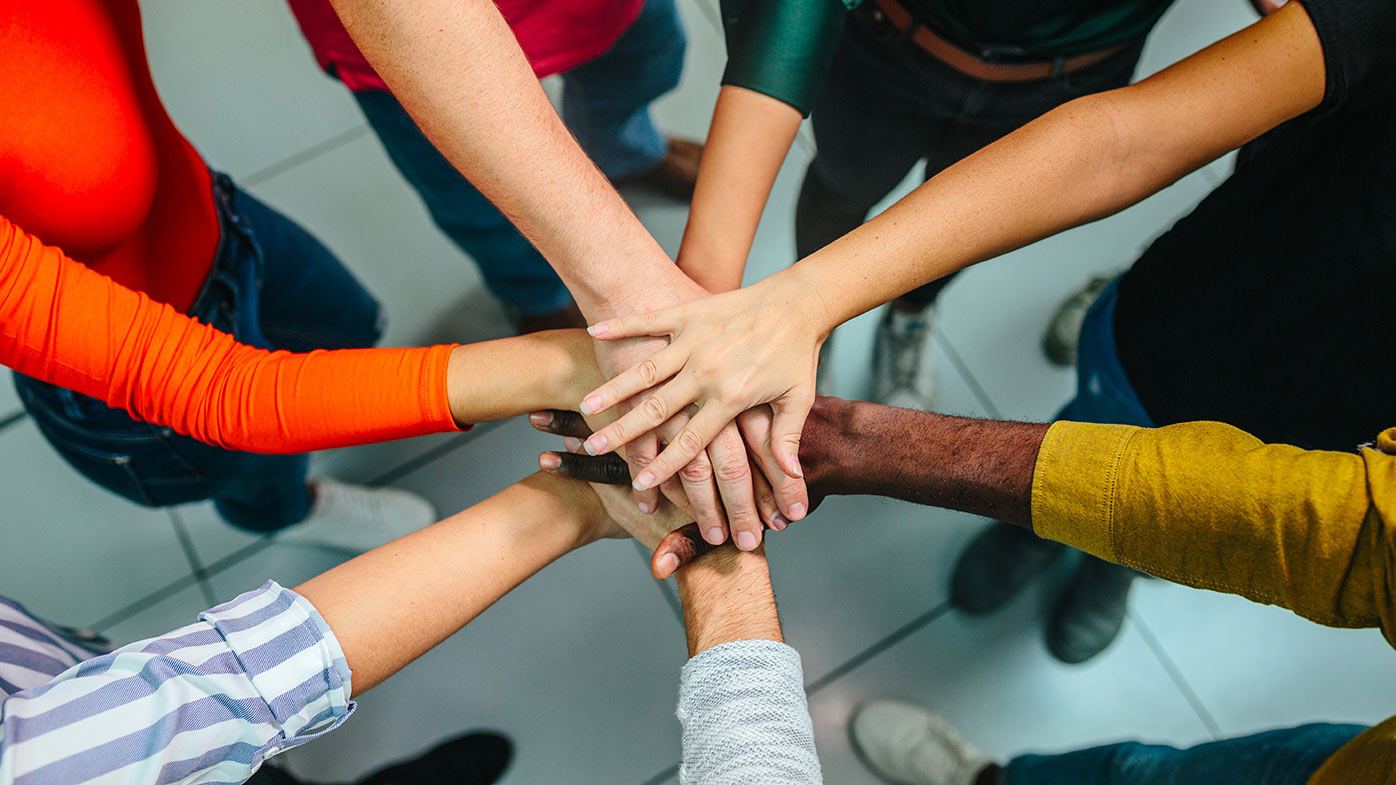Then his thoughts turned to his co-workers. Stan joined Bristol Myers Squibb right after completing his doctorate degree in 1989. Today, he works as a research fellow in Drug Discovery Research. He’s spent his 30-year career hunting for ways to unlock cures to some of the most difficult diseases, including cancer. He had been in pursuit of this devastating illness his entire professional life and suddenly, he was facing it head on. He wasn’t sure how he would be able to still do the work he loved.
One of the first people Stan talked to at work was Pat Newman, a project coordinator with R&D Learning. "Stan is not the first Bristol Myers Squibb employee to become a patient, but each time it happens it sharpens our core mission," she said recently.
“It really focuses your attention on the purpose of your job,” she recalled. “It reinforced my dedication to do the best job that I could possibly do.”
In fact, Stan’s entire department looked for ways to support him during six months of treatments. They adjusted the temperature in his work area; installed extra hand-sanitizers throughout his department; scaled back his in-office hours, picked up extra assignments and shuttled him to the office.
When he was done treatments, the department celebrated his success and recovery. They even donated an infusion chair in Stan’s name to the cancer center where he was treated. Finally, they presented him with a plaque reading “Who Are You Working For?" Stan. It featured the faces of dozens of his R&D colleagues from Bristol Myers Squibb sites across the U.S.
“That picture was the greatest! I was humbled by the ways my colleagues assisted me,” he recalls.
Since then, Stan has been invited by colleagues across the company to speak at events to share his experience and talk about what it’s like to be a patient and researcher in R&D. His story and video will be highlighted this year as part of the company-wide Global Patient Week celebration.
Stan continues to help other co-workers learn about the Bristol Myers Squibb support programs available for all employees facing a serious diagnosis. Patients are at the center of the corporate mission to discover, develop and deliver innovative medicines to help patients prevail over serious diseases.
Programs to Support Employee-Patients
Dr. David Shepperly, leader of Employee Health and Fitness, is another person at Bristol Myers Squibb who helps to increase the visibility of services and benefits available to employees directly affected by cancer -- either as patients or caregivers. In the U.S., this includes mammography vans that visit the workplace, onsite skin and head and neck cancer screenings, and a resource webpage called “What if I have Cancer?” to address common questions.
Globally, the company provides counseling to help smokers kick the habit as part of a Tobacco-Free Workplace. Additionally, healthy choices are offered in all cafeterias. These are just a few of the well-being programs that helped Bristol Myers Squibb earn the CEO Cancer Gold Standard accreditation in the U.S. and China. This accreditation recognizes the efforts of companies committed to reducing the risk of cancer among their employees and family members.
From his experience, Stan sees a possible new way to assist Bristol Myers Squibb co-workers who suddenly become oncology patients. He’s talking with other employees affected by cancer about forming a support group to share experiences and medical resources for the newly diagnosed.
“I wouldn’t change this journey,” Stan says reflecting on his treatments and then advocacy work after. “I think getting cancer and being here today to talk to others is changing the way I do my job every day."



